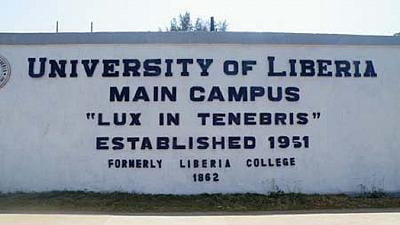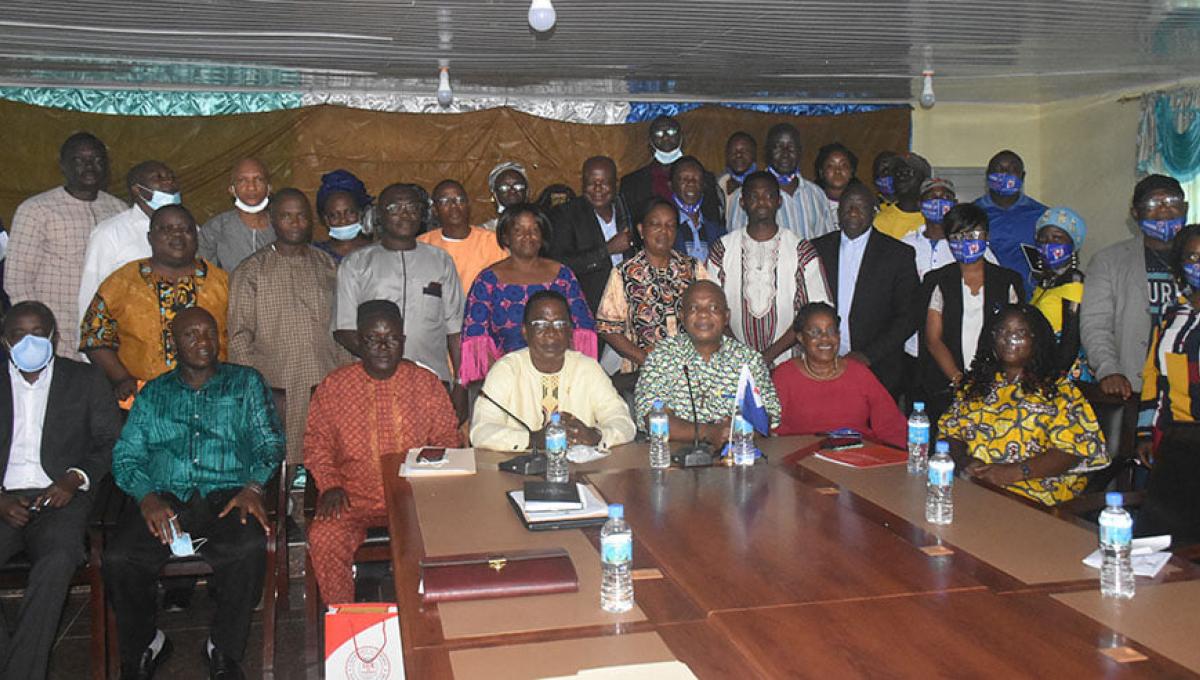Liberia: UL Revised Curriculum for Medical College

Authorities at the University of Liberia (UL) have revised the A. M. Dogliotti College of Medicine curriculum to prepare medical students for the journeys of pre-medical and pre-clinical studies at the University.
The launch of the revised curriculum for the Medical college took place on November 12, 2021, at the University’s Fendall campus, during the first closing of the Excellence in Science Education for Liberia (CAMP xSEL).
Camp xSEL is a partnership program between the UL’s College of Health Sciences (ULCHS) and United States-based partner universities, Yale and Vanderbilt, which aims to equip incoming students with the learning tools for journeys into pre-medical and pre-clinical studies at the University.
Speaking during the program, the Vice President for Health Sciences at UL, Dr. Bernice Dahn disclosed that with the launch of the revised medical Curriculum, the University is on the verge of hiring staff for clinical training.
She disclosed that at least seven (7) persons were sent to Ghana, who helped in the development of the pre-medical curriculum for the school. “We are winning backward to having local faculties. We are downloading and paying for digital books and will get some hard books,” Dr. Dahn noted.
According to Dahn, the plan to revise the curriculum aimed to address the long-standing issue of students spending a long time studying medicine at the college. She said that the faculty of the college will ensure the full implementation of the curriculum.
“We are going to charge the Acting Dean of the A.M. Dogliotti College of Medicine, Dr. Lawrence, to ensure the full implementation of the curriculum,” she said.
Speaking about the CAMP xSEL program, Dr. Dahn stated that the program was intended to address some of the cardinal issues in medical school, especially with regards to the length of time students spend at the College.
“Liberia is the only country in West Africa that medical students go to for nine years or more,” she noted. According to her, following the needs assessment, it was advised to change it from 9 years to seven years.
She added that the CAMP xSEL happens to be one of those solutions. “We actually knew that changing from nine to seven years was going to be a challenge, but not a problem,” Dr. Dahn explained.
She lauded the faculty members who helped to design the program. Dr. Dahn also thanked the US government for its numerous support to the UL, especially towards the medical school.
Meanwhile, Dr. Angela Benson, the Coordinator of Curriculum Reform at the A.M. Dogliotti College of Medicine, told the gathering that the development of the new curriculum was an outcome of a comprehensive survey of the old one, which was revised 10 years ago (in 2011).
Dr. Benson further explained that the development of the new curriculum was one of the nine pillars of the strategy following the survey.
“The curriculum is unique and this is the first time that faculty members have developed their own curriculum.”
She also indicated that the curriculum is student-focused from the pre-medical stage as far as to the preclinical stage, something she noted has happened in the space of two years with inputs from its international technical advisors which meet international standards.
“The curriculum is tailored to a seven-year strategic program, unlike the nine years program,” Dr. Benson said. The curriculum is ready for implementation and there is a plan for monitoring and evaluation.”
Dr. Lawrence Sherman, Acting Dean of the Medical College, expressed the hope that the revised curriculum will make students understand better, as well as the instructors in the line of their duties.
The launch of this new curriculum, he added, will once again make the Medical School the beacon of hope in West Africa. “We hope that this will bring pride to the University,” Dr. Sherman asserted.
Meanwhile, US Ambassador Michael McCarthy indicated that the US government is in the business of building a future together. Ambassador McCarthy who spoke at the occasion also named several health projects that the US government has initiated in the country to improve healthcare.
He named the Resilient and Responsive Health Systems Initiative, Emergency Plan for AIDS release (PEPFAR, and the Bringing Research to Impact for Development, Global Engagement, and Utilization (BRIDGE-U), as some of the projects funded by the US government through USAID to improve health in Liberia.
The US envoy maintained that the development of the medical school curriculum is a result of the longstanding partnerships between Liberia and the US through its institutions including the U.S. Department of Health and Human Services Health Resources and Services Administration and the Yale University School of Medicine.
“We are in the business of building a future together. That is why I am so excited by this joint event,” said Ambassador McCarthy.
According to Ambassador McCarthy, the next generation of health workers and administrators will greatly benefit from this new integrated curriculum.
Ambassador McCarthy expressed confidence that the development of the new curriculum will be transformative for future physicians, most importantly for patients throughout Liberia.
“I want to thank the organizers of the camp, the faculty, and our esteemed camp counselors. Your vision, leadership, and mentorship made the camp a success, and it will be exciting to see how Camp xSEL continues to grow on the incredible foundation you’ve laid this year,” asserted the US Diplomat.
In remarks, the acting President of UL, Prof. Moses M. Zinnah, extolled the US Government for its numerous support to the UL, especially to the Medical College.
“On behalf of the entire University of Liberia family, we wish to thank the people and government of the USA for the continuous financial and technical support to various units within our university,” Dr. Zinnah, who is also the UL’s Vice President for Academic Affairs," said.

